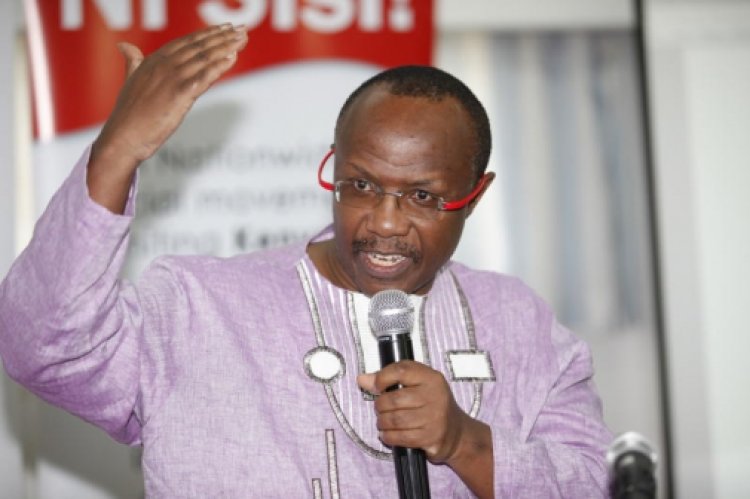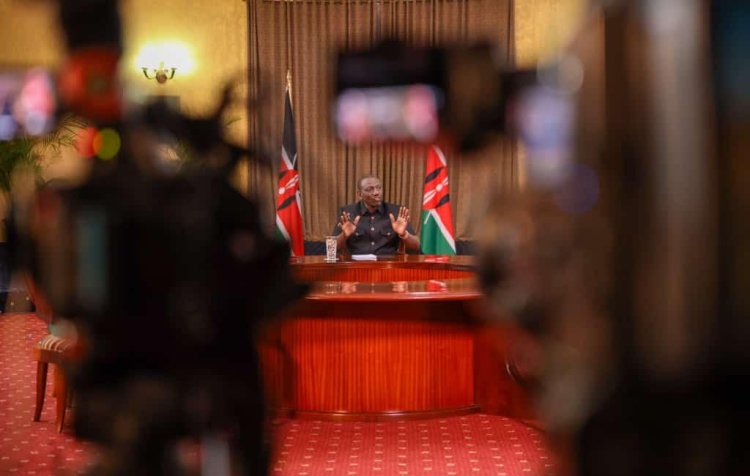Ndii Calls Out Kenyans Accusing Ruto Of Tough Economy Yet Spending A Lot Of Money
Ndii was responding to reports which depicted the ripple effects caused by the dropping value of the shilling, including hiked food prices and skyrocketing public debt.

David Ndii, Chairperson of President William Ruto's Council of Economic Advisors (CEA), has pointed an accusing finger at Kenyans spending money exorbitantly but blaming the government for the poor state of the country's economy.
To prove this, Ndii took to X on Thursday, January 25 to reveal salmon fish Kenyans are allegedly purchasing for close to Ksh9,000 at a local supermarket compared to tilapia which goes for as low as Ksh800.
He believed that tilapia was a better fish delicacy than salmon as it is affordable to Kenyans and helps marketers and farmers reap big profits from the sale of tilapia.
"My apologies to upper deck people that fresh Atlantic Salmon price is up 40%. Not only is Tilapia still affordable, but it also puts money in people's pockets," Ndii noted.

President William Ruto (R), Kikuyu MP Kimani Ichung'wah and economist David Ndii at a retreat. /FILE
"My tweet is not addressed to the majority," he clarified.
He also noted that tilapia fish also lacked a carbon footprint, seemingly an advocate for environmentally friendly methods to tackle climate change.
Ndii was responding to reports which depicted the ripple effects caused by the dropping value of the shilling, including hiked food prices and skyrocketing public debt.
Ideally, a weakening shilling would hint at an increase in exports since goods and services cost less in the international market, a matter which would explain why Ndii dismissed a section of media reports claiming that Kenya's exports had significantly dropped amid the fluctuating currency.
The weakening shilling against the dollar backed by an increase in inflation rates has been pinpointed as the main cause of the currently high cost of living which has inflicted more pain and suffering among Kenyans.
To be specific, the shilling crossed above Ksh160 against the dollar, the lowest in the currency's history.
On December 19, 2023, Ndii warned that the shrinking Kenyan economy could force many businesses to close down, rendering millions jobless.
Confessing that the economy would contract rather than expand in the current administration, Ndii pointed out that a lot of Kenyan businesses catering to the wealthy class may have to change tact and focus on production, which guarantees profits.
"Uhuru’s economic legacy is fake debt financed prosperity which benefited urban rentier elites, at the expense of producers, reflected in consumerism similar to resource windfalls economists call “Dutch Disease”. There was no other way this was going to end but in tears.
"This economy is going to shrink. The other day someone who deals in high-end cars asked me when I think the economy would turn around. I gave him my honest opinion and told him his line of business was unlikely to recover and he might want to look into a production-oriented sector," Ndii indicated.
Two days prior, President William Ruto put to rest contradictory information from state officers on the cost of living and Kenya's economic status.
"I said our economy today is out of distress and that is the truth. For your information, if I wasn't President, the kind of decisions I have made are difficult decisions...very painful decisions that I know will cause pain but it is better we make those decisions now than get Kenya into debt distress," he told journalists during a roundtable interview at State House.
To put the matter to rest but without giving a specific time when the cost of living will come down, Ruto remarked that Kenya was economically stable but had to still navigate rough waters, further indicating that almost eight countries in Africa are in debt distress.
"All we have done is to avoid jumping from the cliff because we have put breaks in expenditure, we have negotiated a good package with the World Bank, the International Monetary Fund and with bilateral countries and that is why I have been on the road," he added.


 admin
admin 




